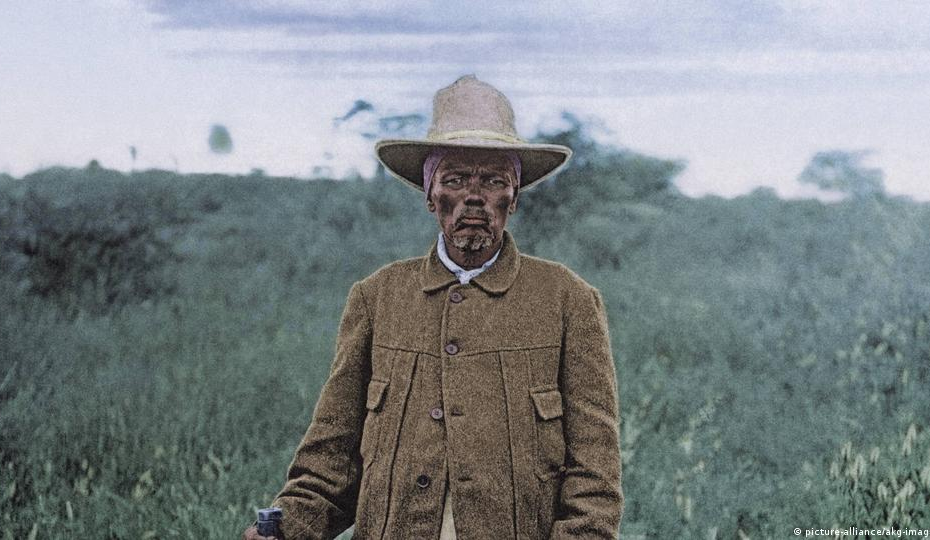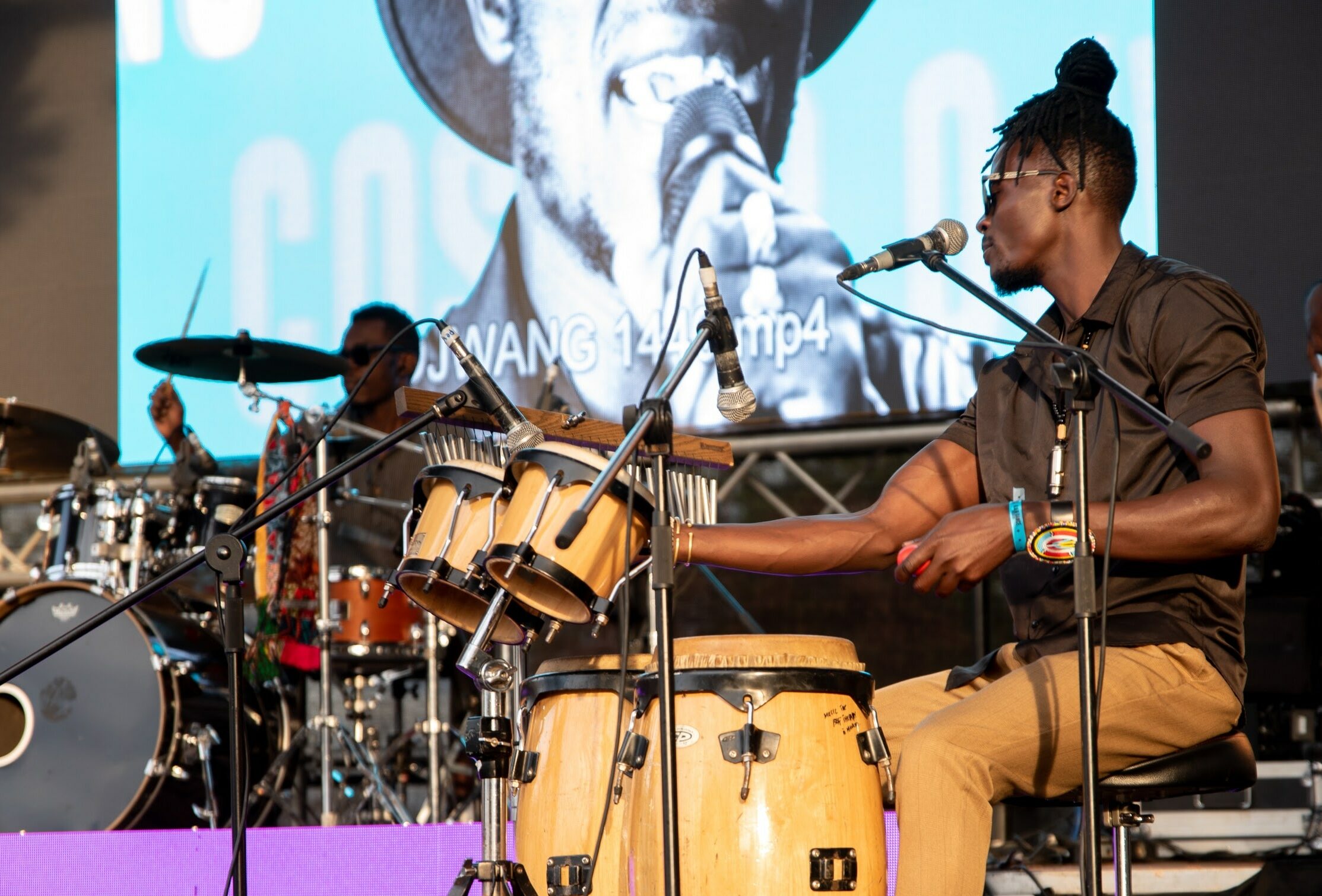Hendrik Witbooi is a name that resonates with the echoes of courage, rebellion, and leadership in the annals of Namibian history. Born around 1830 in Pella, Northern Cape Colony, today’s South Africa, he would grow to become a beacon of resistance against German colonialism and a revered leader of the Nama people. This is his remarkable story.
Quick Interesting Facts About Hendrik Witbooi
- Prophetic Beginnings: Hendrik Witbooi was believed to be divinely inspired, with a conviction that he was guided by God’s will, which played a crucial role in his leadership and the resistance movements he led.
- A Visionary Strategist: Witbooi was not only a warrior but also a skilled strategist. He foresaw the importance of written agreements and was known for his comprehensive diaries and prolific letter-writing that documented strategic plans and alliances.
- Stamp of Leadership: In 2021, Namibia honored Hendrik Witbooi by featuring his portrait on their banknotes as a testament to his impact on the country’s history and his efforts towards independence. Read Also: Samuel Maherero: A Paramount Chief and National Hero of Namibia
- The 1893 Rebellion: Witbooi ignited a rebellion against German colonizers in 1893, striking a significant blow against the imperial forces. This marked the beginning of a prolonged period of resistance against European colonization.
- The Witbooi Bible: Hendrik owned a Bible filled with his own annotations and commentaries, which reflected his self-perception as a chosen liberator of his people, akin to the biblical figure, Moses.
- National Symbol: The heroic acts of Hendrik Witbooi are so deeply ingrained in Namibian culture that his likeness was added to a mountain in Windhoek, recognized as the ‘Witbooi Statue,’ which is a place of national significance.
- The Khowesin’s Leader: Witbooi was initially the leader of the Khowesin, a clan of the larger Nama people. Under his command, they became a formidable force that fought for the Nama’s autonomy.
- The Witbooi Declaration of War: His letter to Maharero of the Herero people in 1884 is famous for declaring joint war against German usurpers and advocating unity among the indigenous tribes against colonialism.
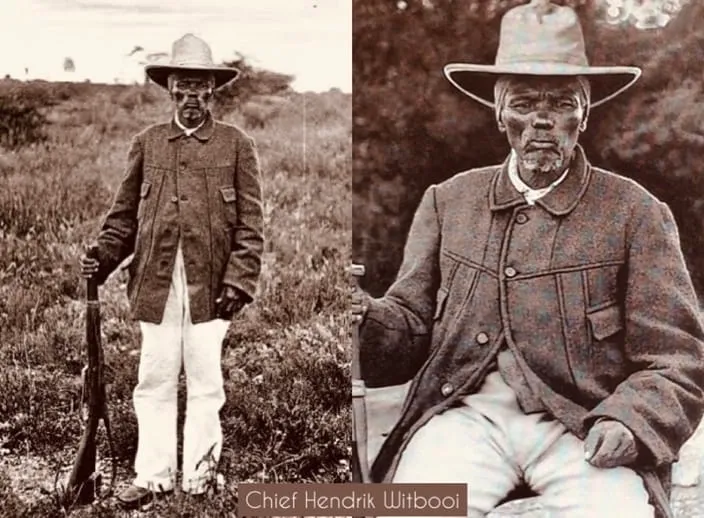
Early Life and Upbringing
Hendrik Witbooi’s early years were shaped under the influence of a time marked by colonial pressures and the resilience of indigenous communities. Despite limited historical records, it is known that he was born into a paramount family, heir to the leadership of the Khowesin clan with a rich cultural and spiritual lineage. From an early age, Witbooi displayed a sharp mind, further honed by his education at a Lutheran Mission.
Witbooi was nurtured in an environment where tradition and wisdom were passed down through generations, preparing him to navigate and lead amidst the complexities of colonial expansion. Formative experiences in his youth, including knowledge of indigenous governance and exposure to missionary influence, which introduced him to Christian teachings, fundamentally shaped his convictions and approach to leadership.
The interplay between his traditional Nama upbringing and his later adopted Christian beliefs is considered pivotal in Hendrik’s life. True to the customs of his people, he honed the art of horseback riding and warfare, skills deemed essential for the protection of his clan. However, his encounter with Christianity deeply impacted his worldview, eventually leading him to merge his traditional role with that of a Christian mission leader.
This integration of belief systems not only fueled his moral compass but also sophisticated his strategies in the struggle for his people’s freedom, synthesizing the strengths of both worlds to become the inspirational leader remembered to this day. Read Also: Kaunda suit: The darling wear of African leaders
Leadership and Struggles
Witbooi’s leadership qualities were evident from a young age. As the son of Nama chief Moses Witbooi, he received an education in Western and traditional African values. He quickly proved himself a capable leader, leading his own clan at just 24 years old after his father’s death.
His leadership journey began as the Gaob (chief) of the ǀKhowesin clan, a position more than just a title. It was a call to duty, a responsibility to protect his people and their land. In the face of mounting pressure from German colonizers, Witbooi rose to the occasion, becoming the first African leader to take up arms against German imperialism.
His strategic acumen and diplomatic skills were evident in his attempts to unite the Herero and Nama against the common enemy. While these attempts were ultimately unsuccessful, they cemented his reputation as a visionary leader who recognized the menace of colonialism before many others did.
Witbooi navigated the tumultuous waters of politics and war with unparalleled resolve during his tenure as a leader. Despite the odds, he courageously led his people, inspiring them with his unwavering commitment to their cause. His leadership was not without its trials and tribulations, but Witbooi faced each challenge head-on, his spirit undeterred.
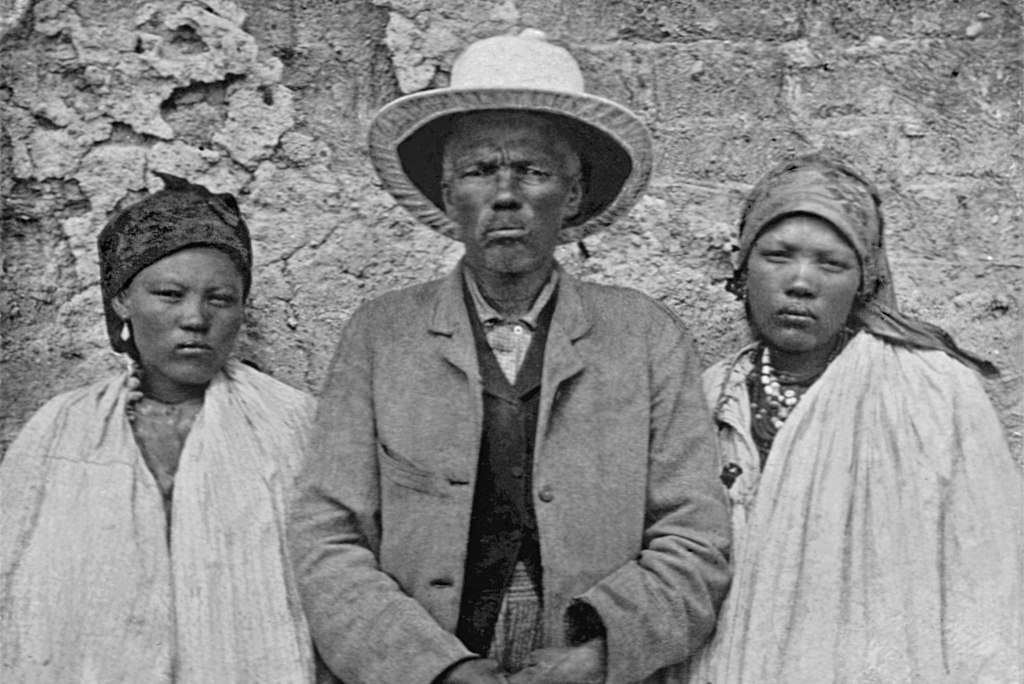
Legacy
Hendrik Witbooi’s life was cut short in battle, but his legacy lives on. Today, he is celebrated as a national hero of Namibia. His fight against German colonialism is a testament to his indomitable spirit, a legacy that inspires generations. Witbooi’s name is etched in the history of Namibia, and his impact on its struggle for independence continues to be honored and remembered.
Moreover, his contributions were not limited to his own people. Hendrik Witbooi also made significant political strides, serving as the Deputy Prime Minister and Minister of Labour and Manpower Development in Namibia. His diplomatic skills and leadership qualities were evident in these roles, further solidifying his historical place. Read Also: Discovering Namibia: Germany’s Footprint in Africa
His teachings of resistance and unity still resonate today as a reminder that even in the darkest times, one person’s determination can spark a movement and change the course of history. As we look back at Hendrik Witbooi’s life and leadership, we are reminded of his profound impact on the struggle for justice and freedom in Namibia, a legacy that will continue to inspire future generations. So, his legacy continues to live on as an example of bravery, determination, and resilience in the face of adversity.
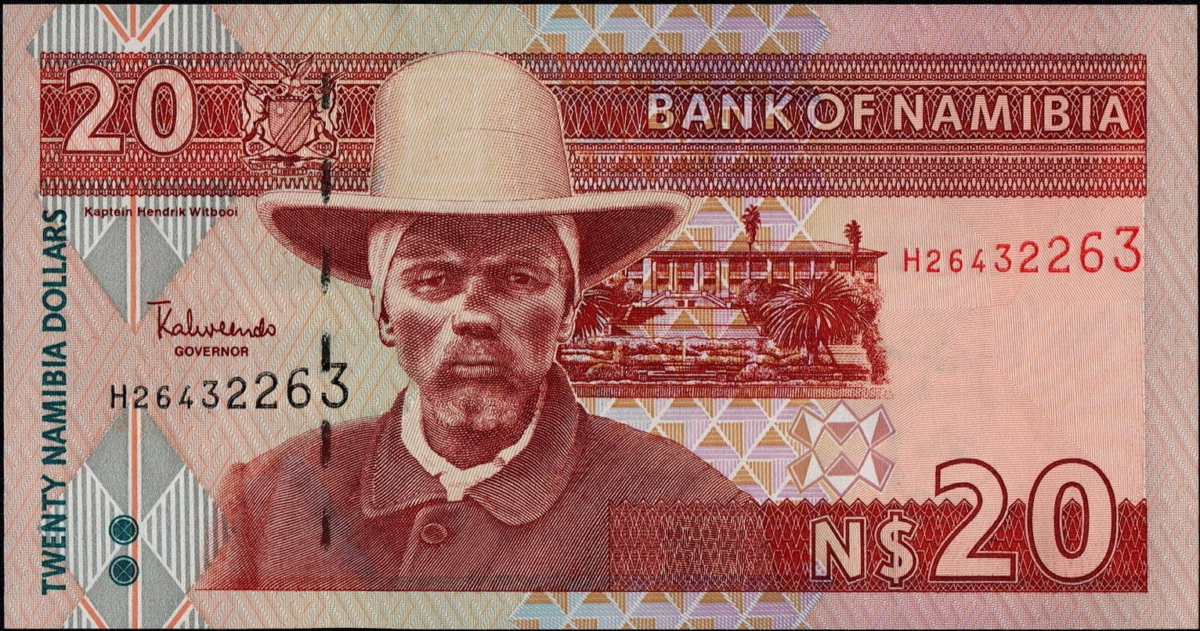
International Recognition
Hendrik Witbooi’s stature as a symbol of resistance and leadership has transcended national boundaries, with international recognition highlighting his historical importance. The United Nations Educational, Scientific and Cultural Organization (UNESCO) honored Witbooi by including his handwritten bible and whip in the Memory of the World Register in 1996, acknowledging these artefacts as significant documents of our shared global heritage.
His depiction on Namibian currency, most notably the Namibia Dollar, is not merely a national tribute but also an international statement of his iconic status. Witbooi’s image on currency bills is encountered daily by people worldwide, serving as an ongoing testament to his influence and the importance of his legacy in the global context.
Through various exhibitions and scholarly works around the globe, Witbooi is celebrated not only as a national hero of Namibia but also as a key figure in the historical narrative of colonial resistance. These international tributes continue to draw attention to Hendrik Witbooi’s enduring legacy and his role as both a national and a global symbol of freedom and human rights.
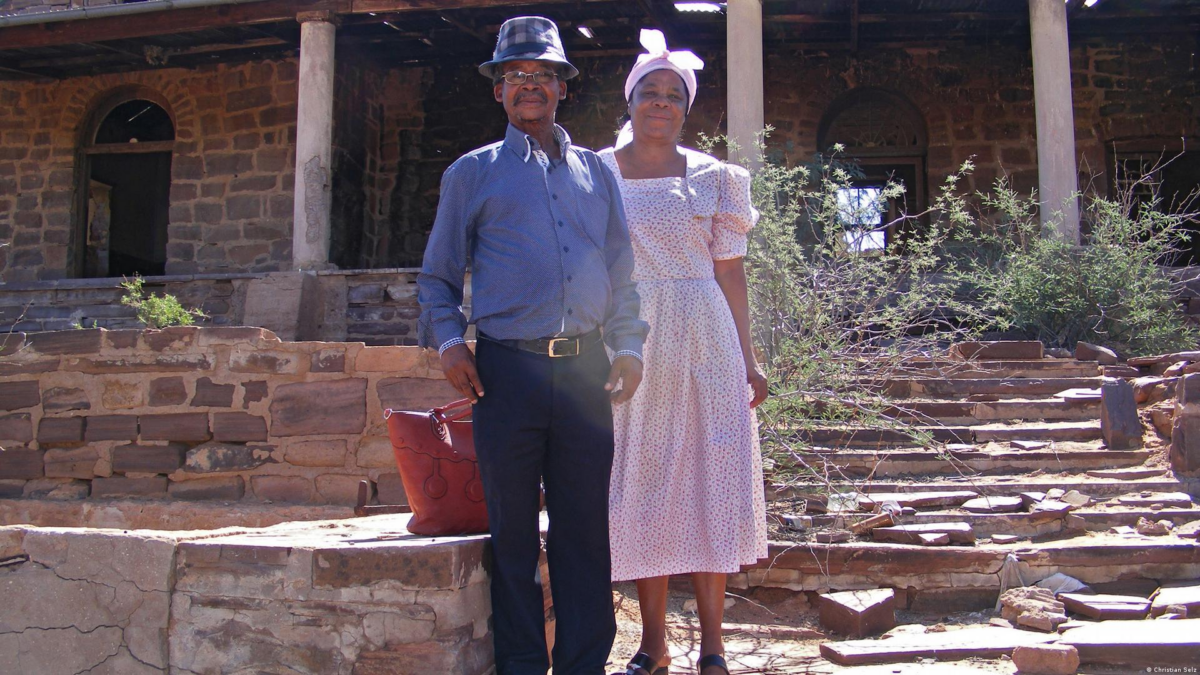
Controversies and Criticisms
While Hendrik Witbooi is largely celebrated as a freedom fighter and a symbol of resistance against colonial powers, his tenure and actions were not without controversy or criticism. Scholars and historians have dissected aspects of his leadership, raising questions about the complexity of his alliances and strategies. Critics argue that his efforts to unite different ethnic groups were sometimes hampered by pre-existing tribal conflicts, which may have weakened the collective resistance against the colonizers.
There are also debates surrounding the contradiction between his fight against colonial oppression and the fact that he, at times, utilized the social and military structures introduced by the colonizers to maintain his own power. Some have suggested that these actions could be viewed as a form of collaboration with the forces he sought to resist, presenting a moral grey area in his otherwise revered legacy.
Moreover, some contemporary views consider the implications of his rebellion’s impact on the civilians, including the inevitable casualties and hardships suffered by his own people due to the prolonged resistance.
However, it’s important to note that many of these controversies are analyzed through a modern lens, which may not fully capture the nuances and exigencies of Witbooi’s historical context. As with many historical figures, Witbooi’s life and legacy display moments of remarkable heroism and decisions that open up more complex discussions about leadership during colonial resistance.
Bottom Line
Hendrik Witbooi’s life and leadership are a testament to his extraordinary character. From his early upbringing to his relentless fight against colonialism, his story is one of courage, resilience, and an unwavering commitment to his people. His legacy continues to resonate in Namibia and beyond, reminding us of the power of leadership and the enduring spirit of resistance.

